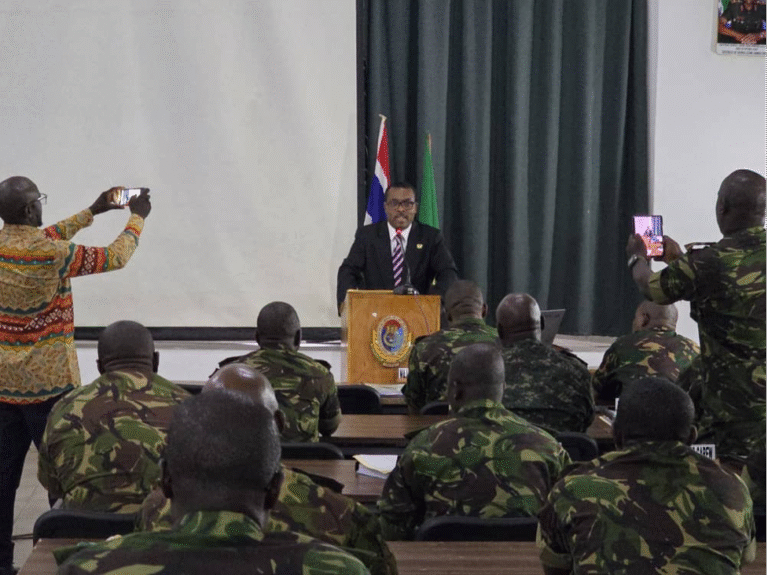By Comm Unit/MoECC
The Minister of the Environment and Climate Change, Jiwoh Emmanuel Abdulai has on the 3rd April, 2025, launched the Nationally Determined Contribution (NDC) 3.0, National Biodiversity Strategy & Action Plan (NBSAP) and the National Pollutant Inventory (NPI) Processes at the Atlantic Lumley Hotel in Freetown.
The launching brought together various stakeholders including MDAs, private sectors, Development Partners, Civil Society Organizations and the media.
Launching the three documents, the Minister unequivocally noted that the occasion marked a historic moment for Sierra Leone as it embarks on the journey towards sustainable environmental governance, climate resilience, protection of the country’s rich biodiversity and combating pollution and waste.
He called on participants to focus on the people across the country, and how climate change, biodiversity loss and pollution affect their lives and livelihoods. Sequel to this, he emphasized to have a vibrant and unify implementation roadmap on actions that are specified within the documents. He maintained that the issues are complex which require concerted actions and collective ownership at national, local and chiefdom level which could guarantee successful livelihood and create synergies for efficiency sake. He repeatedly stated to mainstream climate action across government institutions, private sector, local communities and the fourth estate as it beneficial to farmers, fishermen, youths, women and vulnerable communities.
The Minister noted that the target for NBSAP would help towards climate action as pollution of major rivers affects the country’s rich biodiversity. He stressed for coordination to address the impacts of climate change. He continued that the NBSAP is a critical framework for conserving Sierra Leone’s rich biodiversity hence reaching out to partners for support. He underscored the significance of protecting the country’s natural assets, noting that these assets needed protection for future generation to inherit an assets that would be in a better state than today.
Minister Abdulai considered NDC 3.0 as a renewed climate commitments of Sierra Leone under the Paris Agreement which align with national aspirations to lower emissions and for climate adaptation. He acknowledged the climate impacts that have impacted livelihoods. He said practical and effective adaptation plan is extremely significant to adapt people’s livelihoods to the current realities. He affirmed that data collection is important under the NDC which could enable accessibility of accurate data for decision making.
The Minister said that the NPI would serve as a cornerstone for monitoring, understanding and addressing the environmental impacts of industrial and non-industrial activities nationwide. He furthered that it would also support government planning, policy development management, promoting environmental health by addressing pollution related issues.
Conclusively, “today’s launch marks a significant milestone in addressing climate, nature and pollution crisis that we face. As experts and change makers, we are relying on your collaboration and inclusive decision making at all levels including MDAs, development partners, private sectors, academia, traditional leaders and the fourth estate”, he stated. He acknowledged the invaluable support of development partners and at the same time encouraged other potential partners to support the development of these documents. He thanked the leadership of EPA for enabling Sierra Leone renew its commitments on climate resilience issues to its people and to the Paris Agreement.
Meanwhile, statements were delivered by representatives from different development partners including the Deutsche GesellschaftfürInternationaleZusammenarbeit (GIZ) and (BMZ), or Federal Ministry for Economic Cooperation and Development, United Nations Framework Convention on Climate Change (UNFCCC), European Union (EU), United Nations Development Programme (UNDP), and Food And Agricultural Organization (FAO).







